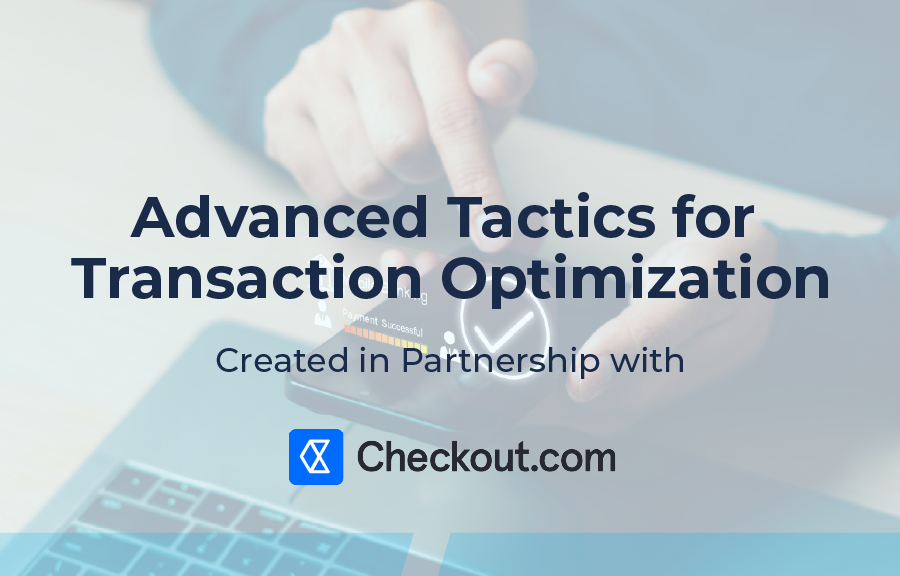
Advanced Tactics for Transaction Optimization

The Advanced Tactics for Transaction Optimization course is a self-paced, intermediate program designed for payment professionals seeking to deepen their expertise in optimizing transaction processes within the eCommerce sphere.
MRC Members: USD $75 (plus applicable taxes)
Non-members: USD $150 (plus applicable taxes)
The Advanced Tactics for Transaction Optimization in eCommerce course is designed to provide eCommerce merchants with practical insights and strategies to enhance transaction efficiency, security, and success. This specialized course will focus on specific transaction optimization tactics, such as real-time account updater, dynamic retry, tokenization, account updater, MID/MCC switching, alternate routing, and removing optional data from the authorization message. Participants will gain an in-depth understanding of these tactics and learn how to implement them effectively to optimize their eCommerce transactions.
FAQs
-
- eCommerce payment managers seeking to enhance their understanding of payments orchestration.
- Fraud prevention specialists who need to understand how payments orchestration can impact fraud management
- eCommerce business owners and managers looking to optimize their payment systems for efficiency and cost-effectiveness.
- Customer experience managers looking to optimize the customer experience through streamlined and efficient payment processes.
- The course may also benefit financial analysts, IT and technical professionals, compliance officers, and strategic planners and consultants in online retail.
- eCommerce payment managers seeking to enhance their understanding of payments orchestration.
- Fraud prevention specialists who need to understand how payments orchestration can impact fraud management
- eCommerce business owners and managers looking to optimize their payment systems for efficiency and cost-effectiveness.
- Customer experience managers looking to optimize the customer experience through streamlined and efficient payment processes.
- The course may also benefit financial analysts, IT and technical professionals, compliance officers, and strategic planners and consultants in online retail.
-
- Program Level: Basic
- Program Field of Study: Specialized Knowledge
- Program Delivery Method: QAS Self Study
- CPE Credits: 1.0
- Advanced Preparation and/or Pre-requisites: None
Please allow approx. 1 hour to complete this course. The course culminates with a comprehensive final assessment to evaluate the user's comprehension of the material. Upon successfully completing the final assessment, participants will be awarded a certificate of completion and CPE credits representing their proficiency in the subject matter.
- Program Level: Basic
- Program Field of Study: Specialized Knowledge
- Program Delivery Method: QAS Self Study
- CPE Credits: 1.0
- Advanced Preparation and/or Pre-requisites: None
Please allow approx. 1 hour to complete this course. The course culminates with a comprehensive final assessment to evaluate the user's comprehension of the material. Upon successfully completing the final assessment, participants will be awarded a certificate of completion and CPE credits representing their proficiency in the subject matter.
-
- Define payments orchestration
- List key challenges that payments orchestration aims to solve
- Outline how payments orchestration works
- Identify and describe the components of payments orchestration
- Identify the key benefits of payments orchestration for merchants
- Describe payment and fraud management costs
- Identify initiatives that drive more efficient cost ownership
- Outline key considerations for merchants looking to partner with a payments orchestration provider
- Define payments orchestration
- List key challenges that payments orchestration aims to solve
- Outline how payments orchestration works
- Identify and describe the components of payments orchestration
- Identify the key benefits of payments orchestration for merchants
- Describe payment and fraud management costs
- Identify initiatives that drive more efficient cost ownership
- Outline key considerations for merchants looking to partner with a payments orchestration provider
-
- MRC Members: USD $75 (plus applicable taxes)
- Non-members: USD $150 (plus applicable taxes)
MRC Education Accreditation

MRC Education Refund Policy